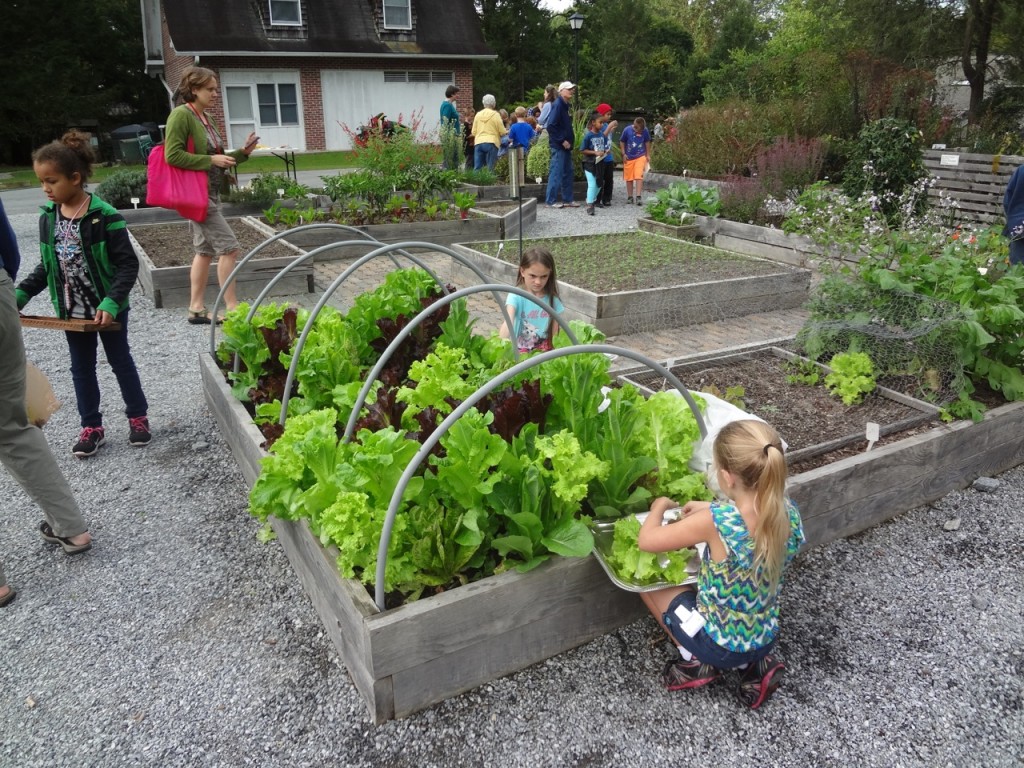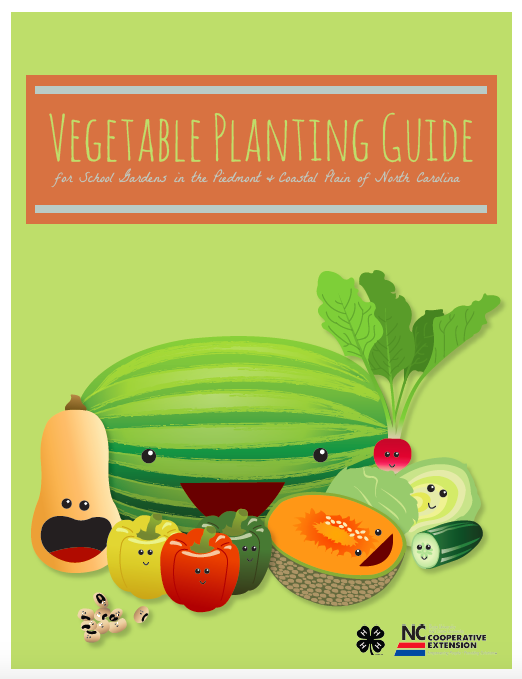School Gardens
go.ncsu.edu/readext?249279
en Español / em Português
El inglés es el idioma de control de esta página. En la medida en que haya algún conflicto entre la traducción al inglés y la traducción, el inglés prevalece.
Al hacer clic en el enlace de traducción se activa un servicio de traducción gratuito para convertir la página al español. Al igual que con cualquier traducción por Internet, la conversión no es sensible al contexto y puede que no traduzca el texto en su significado original. NC State Extension no garantiza la exactitud del texto traducido. Por favor, tenga en cuenta que algunas aplicaciones y/o servicios pueden no funcionar como se espera cuando se traducen.
Português
Inglês é o idioma de controle desta página. Na medida que haja algum conflito entre o texto original em Inglês e a tradução, o Inglês prevalece.
Ao clicar no link de tradução, um serviço gratuito de tradução será ativado para converter a página para o Português. Como em qualquer tradução pela internet, a conversão não é sensivel ao contexto e pode não ocorrer a tradução para o significado orginal. O serviço de Extensão da Carolina do Norte (NC State Extension) não garante a exatidão do texto traduzido. Por favor, observe que algumas funções ou serviços podem não funcionar como esperado após a tradução.
English
English is the controlling language of this page. To the extent there is any conflict between the English text and the translation, English controls.
Clicking on the translation link activates a free translation service to convert the page to Spanish. As with any Internet translation, the conversion is not context-sensitive and may not translate the text to its original meaning. NC State Extension does not guarantee the accuracy of the translated text. Please note that some applications and/or services may not function as expected when translated.
Collapse ▲School gardens can be rich, vibrant spaces for young people to deepen their understanding of local foods. Browse below for resources, ideas and materials that can support a school garden program.

On This Page:
| Growing Your Garden | Garden-Based Curriculum | Lesson Plans & Resources |
- Starting Your School Garden: Download this guide to getting started on developing a plan to build and sustain a school garden. From crafting a school garden team to managing volunteers, learn best practices to set your school up for success.
- School Garden Planting Guide – When do you plant carrots in Western North Carolina? How deep do you tuck the chard seeds into the soil? Download these fun and engaging planting guides for Eastern and Western North Carolina.

- Strawberries in Schools: An NCCES publication on growing strawberry gardens at school to provide rich spaces for students and teachers to explore concepts relevant to their curricula in a hands-on, experiential way.
- Plants for Human Health Institute-STEM Education: School gardens are one way that the PHHI STEM team works to fulfill their mission of equipping teachers to integrate curriculum standards in the edible classroom and improve community nutrition through fresh produce. Resources include videos, virtual lessons, and an e-news archive full of ideas to get your school garden growing.
- North Carolina 4-H Garden-based Curriculum: Browse this list of curriculum that is available through your local county 4-H Cooperative Extension agent. Find out who your 4-H agent is here.
- Other Garden/Farming Curriculum: Visit this list of other garden-based curricular resources from community-based organizations.
- Junior Master Gardener: An International youth gardening program created and managed by Texas A&M AgriLife Extension that engages students in hands-on group and individual learning experiences to cultivate a love of gardening and develop an appreciation for the environment.
- NC Ag in the Classroom: Through the NC Farm Bureau, Ag in the Classroom provides lesson plans that teachers can use to connect their kids to the farm and garden through science, math, literacy and social studies.
- Food, Land and People: Through the NC Division of Soil and Water, this environmental education curriculum is available to educators for free after attending one of their trainings.
- The Edible Schoolyard: A database of lessons developed from garden educators across the country.
- Life Lab: A non-profit organization from Santa Cruz, California that cultivates children’s love of learning, healthy food, and nature through garden-based education.
- Garden Mosaics: Cornell University science curriculum for youth, including action projects and community food assessments.
- Garden Toolkit: Are you just getting started with a school garden? Think about gathering these tools to make gardening a little easier and a lot of fun.
- Planting Methods: Should you broadcast seeds or transplant? What does this mean? Hone your horticultural skills with this quick guide on ways to plant your garden.
- Growing a Garden: What do you want to grow? This map will give kids an idea on how to get started gardening and how to care for their plants.
- Square-Foot Seeds: One student wants to plant radish, another would like to grow potatoes. This activity from our Plants for Human Health Institute uses math to figure out proper plant spacing.
- Garden Maintenance Timeline: For first-time gardeners it can be a challenge to keep up with the tasks needed to care for the garden. Use this timeline to help keep your garden growing.
- Garden Harvest: Your garden has grown! This lesson focuses on how to harvest, process, and store your bountiful produce.
- Basil Seed Germination Necklace: Understand the process of germination through this activity from 4-H’s Soil Solutions.
- Upcycled Plant Labels: Keep track of what and where you planted with this fun and easy activity for making plant labels.
- Recycled Rain Gauge: Knowing how much rain has fallen helps young gardeners understand the relationship between weather and garden growth. This activity gives gardeners the opportunity to build their own rain gauge.
- Afterschool Garden Club: Have you ever considered tapping into teenagers to teach an after school garden club? Read about this successful model with Brunswick County 4-H.
- Pumpkin Lesson: Do pumpkins sink or float? How many seeds do they have? Use this grab and go activity to bring together math and literacy around pumpkins in the garden.
- Garden Poetry: Be inspired by a sensory experience with herbs to write poetry in the garden.
- Peer Relationships in the Garden: The garden is a special place that can teach us to care about ourselves and others. Read about how this school garden became a space for social-emotional learning and healing.
As a response to COVID-19, NC State Extension offices are working with local partners to distribute seed packs and start guides to families with kids at home during school closures. Numerous School Nutrition directors are reporting great support from their 4-H and Extension offices regarding volunteers and are happy to have seeds added to meal distribution!
Learn more about Seed Sharing during COVID-19 school closures.
Also see and share Grants available for feeding kids 0-18 through school and center closures.
Primary Contact:
Liz Driscoll
4-H Youth Specialist
Departments of Crop and Soil Sciences, Entomology and Plant Pathology and Horticulture Science
NC State University
liz_driscoll@ncsu.edu





